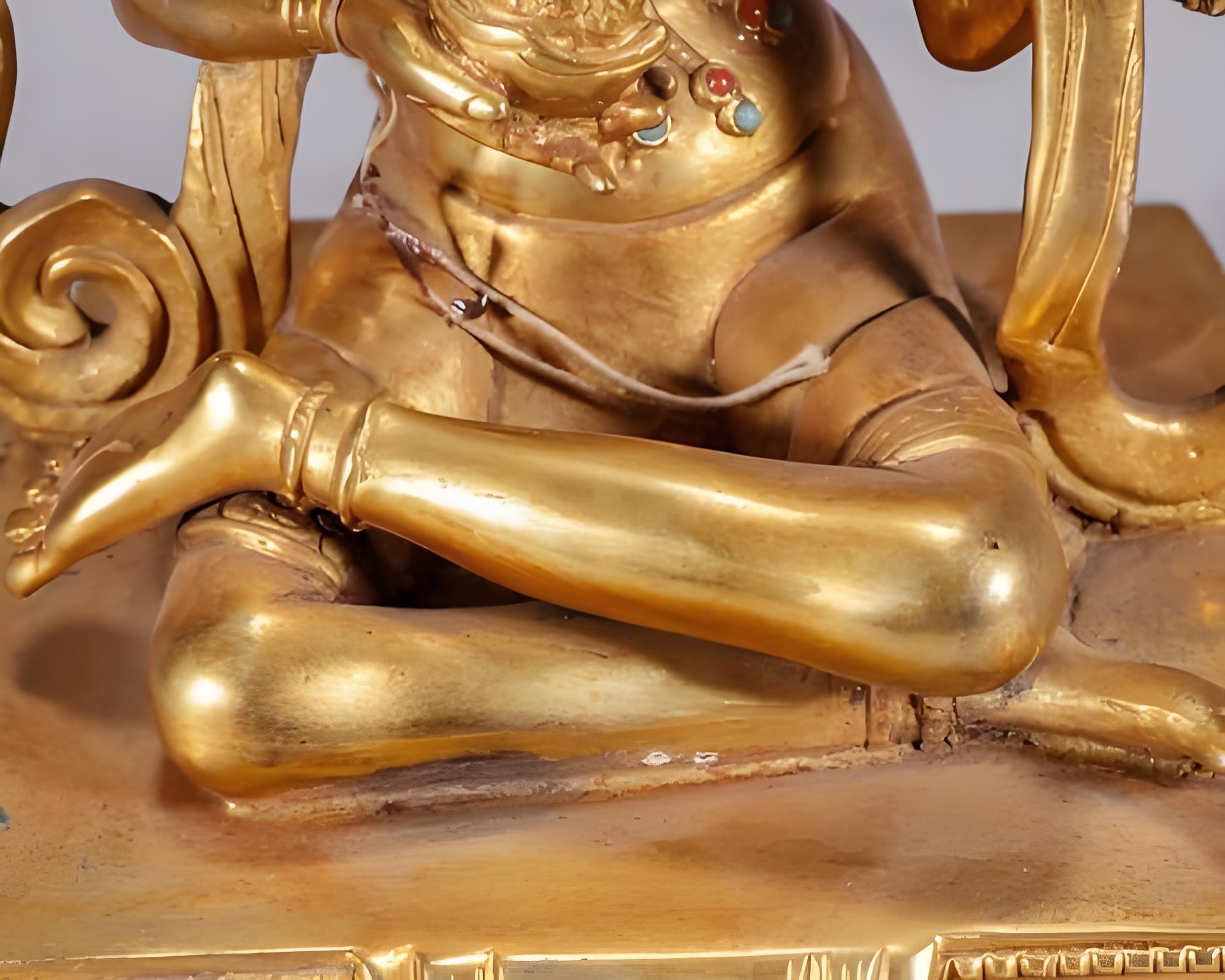type
status
date
slug
summary
tags
category
icon
password
AI summary
The Jambhala mantra is a powerful practice that has been revered for centuries in Tibetan Buddhism and beyond. Known for its ability to attract wealth, prosperity, and abundance, the Jambhala mantra is more than just a series of words; it's a pathway to transforming your relationship with material and spiritual wealth. This article will delve into the depths of the Jambhala mantra, exploring its origins, meaning, and the potent benefits it offers to practitioners.
What is the Jambhala Mantra?

The Jambhala mantra is a sacred phrase associated with Jambhala, a deity of wealth and prosperity in Buddhist traditions. Jambhala is often depicted as a Bodhisattva or a Dharma protector, embodying the generosity and abundance that are essential for spiritual growth. The mantra is chanted or recited to invoke Jambhala's blessings, aiming to remove obstacles that hinder financial well-being and spiritual fulfillment. The practice of the Jambhala mantra is a path to cultivate a mindset of abundance, generosity and gratitude.
Jambhala Mantra in Tibetan
The Jambhala mantra in Tibetan is written as:
ༀ་ཛཾ་བྷ་ལ་ཛ་ལེནྡྲ་ཡེ་སྭཱ་ཧཱ།
This is usually transliterated as:
Om Dzambhala Dzalim Dzaya Soha
The pronunciation can vary slightly depending on the specific dialect, but the overall sound and vibration are consistent in invoking the energy of Jambhala.
Jambhala Mantra in Sanskrit
While the Jambhala mantra is most commonly associated with Tibetan Buddhism, it is derived from Sanskrit roots and can be written as:
ॐ जम्भल जलेंन्द्र स्वाहा
This is transliterated as:
Om Jambhala Jalandraya Svaha
Both the Tibetan and Sanskrit versions of the mantra carry the same essence and purpose, although subtle differences exist in their phonetic qualities.
Meaning of the Jambhala Mantra
The Jambhala mantra carries a rich tapestry of meaning, each syllable contributing to its potent energy:
- Om: A sacred sound that represents the primordial vibration of the universe and the essence of existence. It is often used to initiate mantras, invoking the blessings of the divine.
- Dzambhala/Jambhala: Refers to the name of the deity, Jambhala, the embodiment of wealth and abundance. By chanting this name, practitioners are invoking his presence and seeking his blessings.
- Dzalim/Jalandraya: This portion of the mantra is often interpreted as a seed syllable for the deity, invoking his specific qualities and power. It also embodies the fluidity and continuous flow of prosperity.
- Soha/Svaha: A common ending in mantras, meaning "hail", "may the blessing take root", or "may this be so." It signifies the offering and acceptance of the mantra's blessings.
Therefore, the overall meaning of the mantra is an invocation to Jambhala, requesting his blessings for the continuous flow of wealth, prosperity, and abundance, ultimately rooted in the divine.
Benefits of Practicing the Jambhala Mantra
The practice of the Jambhala mantra is believed to have a multitude of benefits, both material and spiritual:
- Attracting Wealth and Prosperity: The primary benefit associated with this mantra is the ability to attract financial stability and abundance. It is believed that consistent practice can help remove obstacles that hinder financial growth.
- Cultivating Generosity: By focusing on abundance, this mantra encourages practitioners to be generous and charitable, recognizing that true wealth is about sharing and giving. This also helps with creating good karma.
- Overcoming Scarcity Mindset: Regular practice can help overcome a scarcity mindset, fostering a sense of gratitude and contentment with what one has. This shift in perspective is crucial for attracting more abundance in one's life.
- Spiritual Growth: Beyond material wealth, the Jambhala mantra is a path to spiritual growth. By aligning with the energy of abundance, practitioners can cultivate inner peace and contentment.
- Removing Obstacles: The mantra is believed to remove inner and outer obstacles that may hinder financial stability, such as negative thoughts, poor decision making and bad habits.
- Positive Energy: Reciting the mantra daily creates positive energy and vibrations in one's environment.
Incorporating the Jambhala mantra into your daily spiritual practice can be a transformative experience. It is recommended to chant with intention, focusing on the meaning of the mantra and the qualities it embodies. With dedication and sincerity, the Jambhala mantra can unlock the door to greater prosperity and abundance in all aspects of your life.
Loading...






